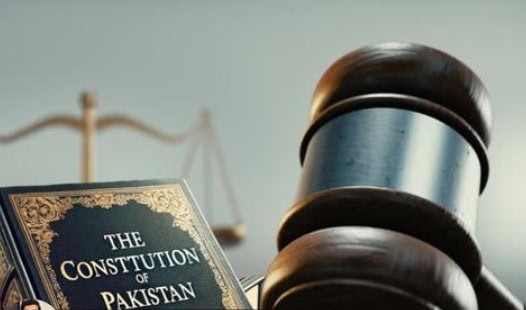ISLAMABAD – The 26th Constitutional Amendment Bill sailed through National Assembly early Monday morning after month long negotiations, receiving approval from both houses of parliament.
Senate initially passed it with a two-thirds majority, and it was later approved in the National Assembly during a late-night session, with 225 votes in favor, and 12 members from the PTI and the Sunni-Ittehad Council opposing it.
The 26th Amendment Act 2024 proposes significant changes to Pakistan’s Constitution, mainly focusing on the judiciary and the environment.
Environment
Article 9A guarantees everyone right to clean and healthy environment in Pakistan. It’s a formal acknowledgment that environmental health is important for the well-being of people.
Judicial Appointments
Judicial Commission: With new changes, the amendment increases number of members in commission that selects judges. Now, it will include judges, and representatives from Parliament to ensure diverse opinions in judge appointments.
Nominations: Prime Minister and the leader of the opposition will each nominate members to this commission, promoting bipartisanship.
Chief Justice Appointment
A parliamentary committee will recommend one of three proposed names, and this change is said to add layer of scrutiny and collective decision-making.
Judges Terms and Performance
Chief Justice Term will serve a fixed term of 3 years, even if they reach retirement age during that time. If judges perform poorly, they will get a chance to improve. If they don’t, the Judicial Council can take action against them.
Curtailed Judicial Powers
Suo Motu Powers: Top judge of Supreme Court will no longer have the authority to take action on its own initiative (suo motu). Instead, a small committee of judges will decide whether to take on new cases.
High Court Powers: Similarly, high courts will also be restricted from taking suo motu actions.
Case Management
Supreme Court can transfer cases between high courts if it feels justice isn’t being served, ensuring fair trial access.
Constitutional Benches
New rules will establish special courts for key cases, ensuring that judges from all provinces are represented. This is to make sure that various regional perspectives are considered in important judicial matters.
Confidential Proceedings
Discussions in the Judicial Commission regarding judge appointments will be held in private to protect the integrity of the process, though a record will be kept.
26th Constitutional Amendments passed in NA with key judicial reforms














